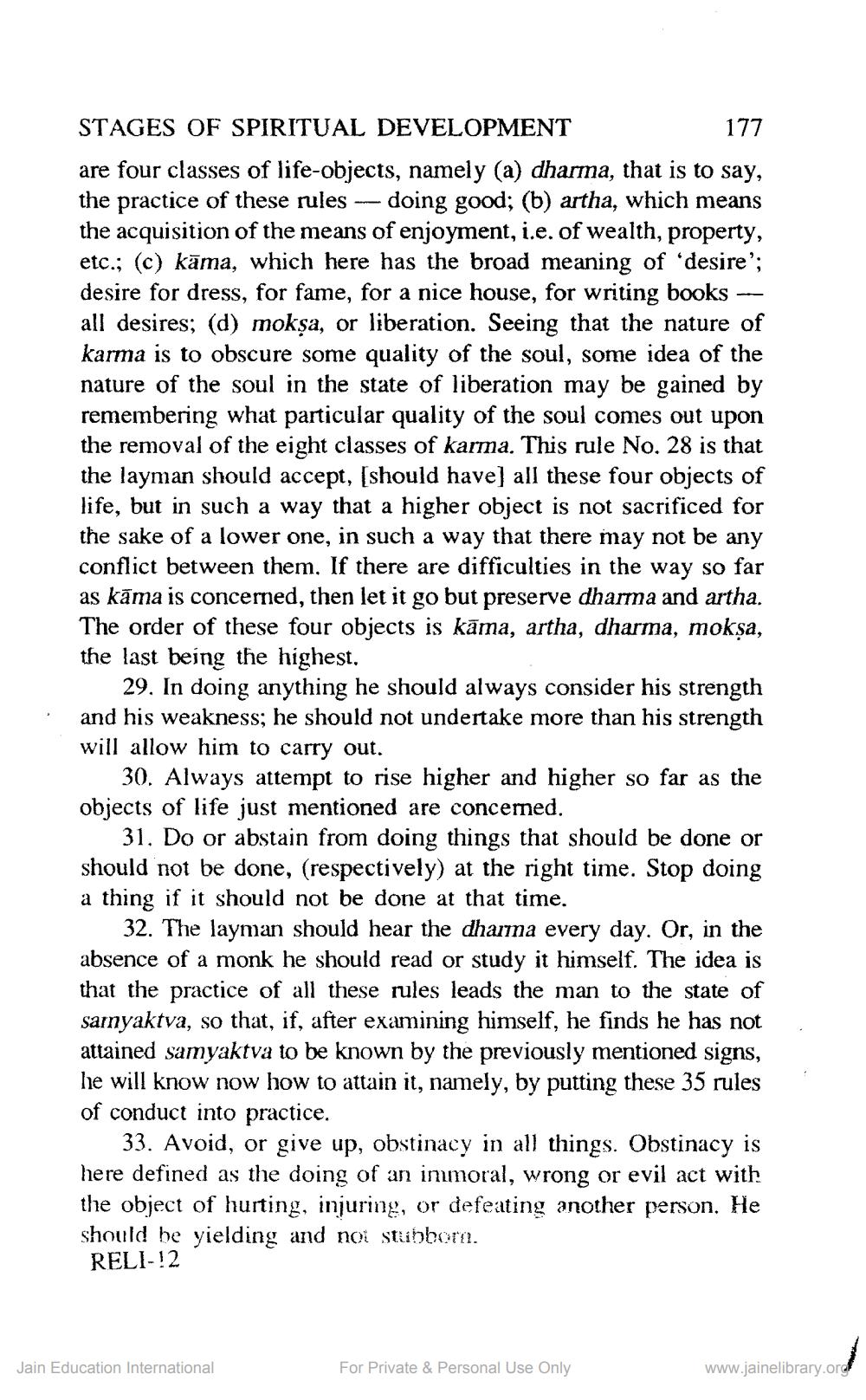________________
STAGES OF SPIRITUAL DEVELOPMENT
177
are four classes of life-objects, namely (a) dharma, that is to say, the practice of these rules doing good; (b) artha, which means the acquisition of the means of enjoyment, i.e. of wealth, property, etc.; (c) kāma, which here has the broad meaning of 'desire'; desire for dress, for fame, for a nice house, for writing books all desires; (d) mokṣa, or liberation. Seeing that the nature of karma is to obscure some quality of the soul, some idea of the nature of the soul in the state of liberation may be gained by remembering what particular quality of the soul comes out upon the removal of the eight classes of karma. This rule No. 28 is that the layman should accept, [should have] all these four objects of life, but in such a way that a higher object is not sacrificed for the sake of a lower one, in such a way that there may not be any conflict between them. If there are difficulties in the way so far as kāma is concerned, then let it go but preserve dharma and artha. The order of these four objects is kāma, artha, dharma, mokṣa, the last being the highest.
―
29. In doing anything he should always consider his strength and his weakness; he should not undertake more than his strength will allow him to carry out.
30. Always attempt to rise higher and higher so far as the objects of life just mentioned are concerned.
31. Do or abstain from doing things that should be done or should not be done, (respectively) at the right time. Stop doing a thing if it should not be done at that time.
32. The layman should hear the dharma every day. Or, in the absence of a monk he should read or study it himself. The idea is that the practice of all these rules leads the man to the state of samyaktva, so that, if, after examining himself, he finds he has not attained samyaktva to be known by the previously mentioned signs, he will know now how to attain it, namely, by putting these 35 rules of conduct into practice.
33. Avoid, or give up, obstinacy in all things. Obstinacy is here defined as the doing of an immoral, wrong or evil act with the object of hurting, injuring, or defeating another person. He should be yielding and not stubborn. RELI-12
Jain Education International
For Private & Personal Use Only
www.jainelibrary.org




